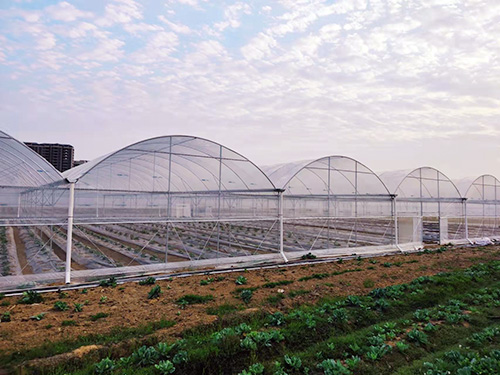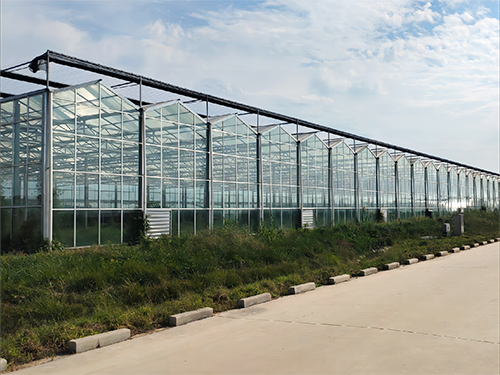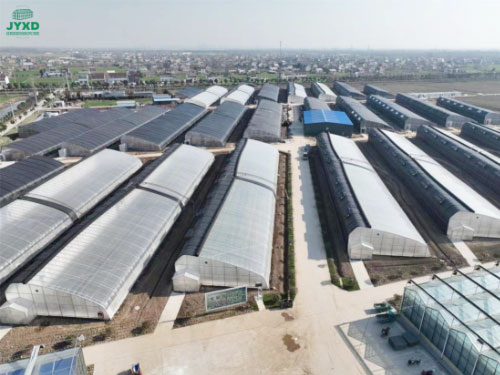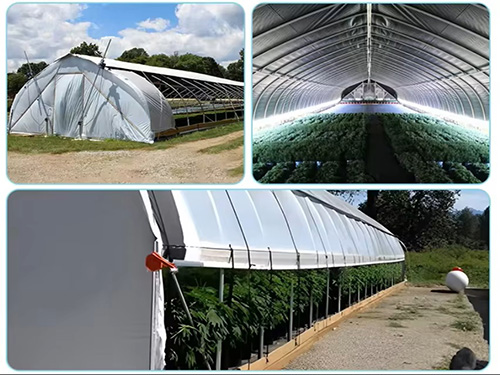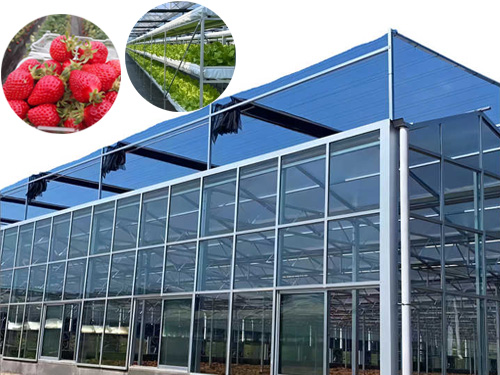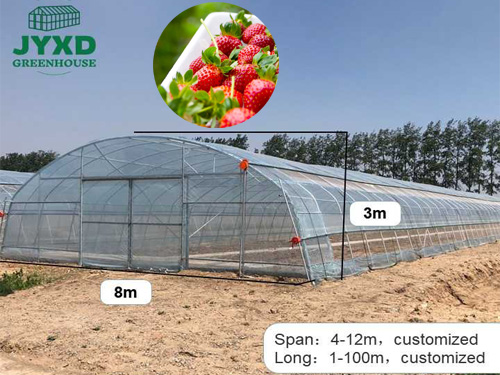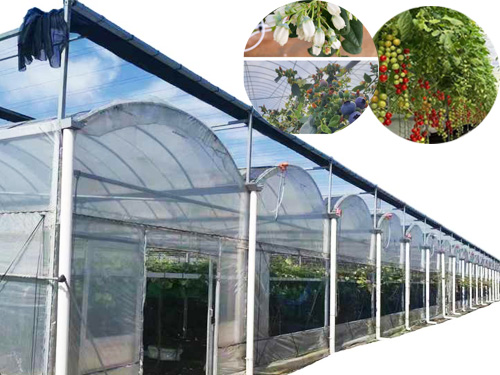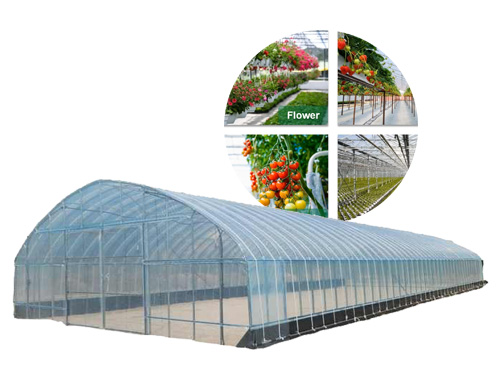NEWS DETAILS
NEWS INFORMATION
Greenhouse Applications in Scientific Research: Studying Plant Growth
AUTHOR:jyxd-greenhouse DATE:2025-03-01 23:52:41 HITS:110
Greenhouses play a crucial role in scientific research, providing controlled environments for studying plant growth, development, and responses to various environmental conditions. Researchers use greenhouses to test new agricultural methods, study plant genetics, and develop strategies for improving crop resilience. This article explores how greenhouses support scientific research and enhance our understanding of plant biology.
1. The Importance of Greenhouses in Scientific Research
Greenhouses create a stable and adjustable environment, allowing researchers to study plants under controlled conditions. Some key benefits include:
• Climate Control: Greenhouses enable precise regulation of temperature, humidity, and CO₂ levels, ensuring consistent experimental conditions.
• Year-Round Research: Unlike outdoor farming, greenhouse studies are not restricted by seasonal changes, allowing continuous experimentation.
• Pest and Disease Management: Controlled environments minimize external threats, ensuring reliable research results.
• Reproducibility: Researchers can maintain consistent variables across multiple studies, improving data accuracy.
These advantages make greenhouses essential for plant science, biotechnology, and agricultural innovation.
2. Key Research Areas Using Greenhouses
Scientific greenhouses support a wide range of research fields, including:
Plant Physiology and Growth Studies
• Examining how plants respond to different environmental factors, such as light, temperature, and humidity.
• Studying photosynthesis, respiration, and water-use efficiency in controlled settings.
Crop Improvement and Breeding
• Developing high-yield, disease-resistant, and climate-adaptive crop varieties.
• Conducting hybridization experiments to enhance plant traits.
Soil and Nutrient Research
• Testing different soil compositions and fertilizers to optimize plant nutrition.
• Analyzing how soil microbes interact with plant roots in controlled conditions.
Hydroponic and Aeroponic Systems Research
• Studying the efficiency of soilless farming methods for sustainable food production.
• Optimizing nutrient delivery systems for maximum plant growth.
Climate Change and Environmental Impact Studies
• Assessing how plants react to rising CO₂ levels and extreme weather conditions.
• Simulating drought, flooding, and heat stress to develop resilient crops.
3. Essential Greenhouse Technologies for Scientific Research
Advanced greenhouse technologies enhance research accuracy and efficiency.
Automated Climate Control Systems
• Regulate temperature, humidity, and ventilation to maintain ideal growing conditions.
• Use data-driven systems for real-time environmental adjustments.
LED Grow Lights and Light Spectrum Control
• Simulate different light conditions to study plant growth responses.
• Customize light wavelengths to enhance photosynthesis and flowering.
CO₂ Enrichment Systems
• Increase CO₂ levels to analyze how plants respond to enhanced photosynthesis conditions.
• Test climate adaptation strategies for future agricultural practices.
Automated Irrigation and Nutrient Delivery
• Drip irrigation and fertigation systems ensure precise water and nutrient control.
• Improve experimental consistency by reducing human error.
Remote Monitoring and Data Collection
• IoT-enabled sensors collect real-time data on temperature, humidity, and soil moisture.
• Researchers can monitor experiments remotely using cloud-based platforms.
4. Best Practices for Conducting Research in Greenhouses
To ensure accurate and reproducible results, researchers follow best practices for greenhouse studies.
Standardizing Experimental Conditions
• Maintain consistent light, temperature, and humidity levels for reliable data.
• Use control groups to compare experimental treatments effectively.
Preventing Cross-Contamination
• Implement strict sanitation protocols to reduce pest and disease risks.
• Separate research sections to avoid unintended cross-pollination.
Data Recording and Analysis
• Collect detailed measurements on plant growth, leaf area, biomass, and yield.
• Use software tools to analyze trends and optimize experimental design.
Replicating Experiments
• Conduct multiple trials to confirm results and improve statistical validity.
• Use diverse plant varieties to assess broad applicability.
5. Future Trends in Greenhouse Research
Scientific research in greenhouses continues to evolve with technological advancements.
• AI and Machine Learning: Smart greenhouse systems analyze plant growth patterns and predict optimal growing conditions.
• Gene-Editing Technologies: CRISPR and other methods accelerate the development of improved crop varieties.
• Sustainable Agriculture Innovations: Research focuses on reducing resource consumption while maximizing yields.
Conclusion
Greenhouses provide an essential platform for scientific research, enabling controlled studies on plant growth, genetics, and environmental responses. By integrating advanced technologies and best practices, researchers can develop innovative solutions for sustainable agriculture and food security. As greenhouse research continues to advance, it will play a vital role in shaping the future of global food production.
Would you like recommendations on specific greenhouse technologies for research applications?
Hebei Juyou Xinda Greenhouse Facilities Co.,Ltd.
Copyright © 2024-2025 https://www.jyxd-greenhouse.com. All Rights Reserved Hebei Juyou Xinda Greenhouse Facilities Co.,Ltd.Copyright




 Current Location:
Current Location: